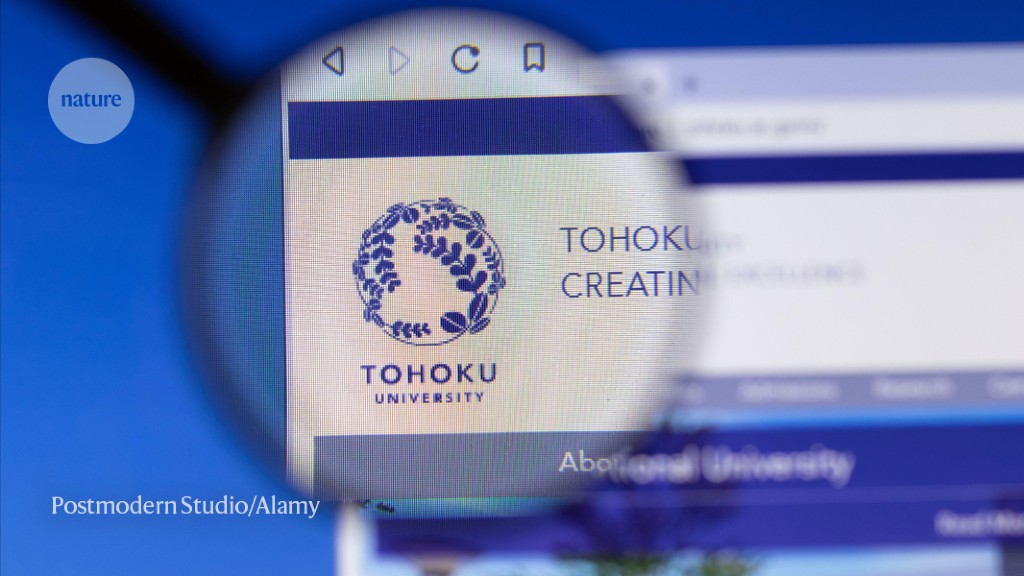Japanese fund to create ‘Ivy League’ gives first award to just one university

A plan to create an elite group of institutes has surprised researchers as government makes Tohoku University the sole recipient of grant

Tohoku University plans to make Japanese and English its official languages and raise the proportion of international researchers and students.Credit: Postmodern Studio/Alamy
A Japanese government fund aimed at creating a group of ‘elite’ domestic universities to rival the US Ivy League has got off to a surprising start. In its first year, the selection board of the Japan University Fund has chosen only one institute — Tohoku University in Sendai — as a grant recipient, rather than the expected four to six institutions.
Inspired by the wealth and research success of the US Ivy League, a group of prestigious private universities in the northeastern United States, Japan established a ¥10-trillion (US$75-billion) university endowment fund in 2021. The fund aims to bolster Japanese research and education amid concerns about the international ranking of its universities.
When the Japanese government first announced the fund, its Cabinet Office said it plans to distribute 3% of the fund’s total value, equivalent to ¥300 billion, or $2 billion, yearly for 25 years among 4–6 universities selected by an advisory board through applications.
But on 1 September, the government announced that Tohoku would be the sole recipient of this year’s grant — bypassing nine other universities that also applied for funding, including Japan’s most prestigious research institutions, the University of Tokyo and Kyoto University.
The Japan Science and Technology Agency (JST), the government organization responsible for managing the ¥10-trillion investment, says that the gross income from 2022 stood at just ¥74 billion, or $500 million. The exact amount that Tohoku will receive has not yet been announced but will be decided while “taking into account the financial condition of the Japan University Fund”, according to JST. The ¥300 billion target amount won't be awarded until 2026 to allow the investment to ramp up.
Only Tohoku
The selection board said in a statement that only Tohoku’s proposal was “deemed appropriate” for this application round. “The board’s function is to provide advice for becoming an internationally competitive university,” says Takahiro Ueyama, a member of the Cabinet Office’s Council for Science, Technology and Innovation and chair of the selection board. He adds: “We selected universities that were deemed capable of receiving and benefiting from such advice, which happened to be only one in this application round.”
Amane Koizumi, a neuroscientist at the National Institutes of Natural Sciences in Tokyo and a member of the advisory board for the Times Higher Education World University Rankings, says that the selection of Tohoku suggests that the board valued management reform over historical research performance.
Although Tohoku ranks above many Japanese institutions on various indices, including the Times Higher Education World University Rankings, the University of Tokyo and Kyoto University rank higher than it and are considered research leaders in Japan. But the proposal that Tohoku submitted commits the university to adopting Japanese and English as its official teaching and communication languages, as well as raising the proportion of international researchers and students to 30%.
It also aims to depart from the hierarchical laboratory structures commonly used in Japan, in which professors wield considerable control over research direction and resources, often limiting the autonomy of early-career scientists.
1,500 start-ups
Tohoku must refine parts of its current proposal before the funding is awarded. If the final bid is successful, the university will use part of the endowment to foster start-up companies that can commercialize its research, aiming to create a long-term income stream from royalties. The target for the university is to start 1,500 new companies within 25 years.
Akiyoshi Yonezawa, vice-director of the International Strategy Office at Tohoku, says that the university’s ability to recruit young, international talent will be key to its success. “The test for Tohoku University will be whether it can really create an attractive environment for early-career researchers,” he says.
The Ministry of Education, Culture, Sports, Science and Technology has announced plans for another round of applications next year.
doi: https://doi.org/10.1038/d41586-023-02867-0
This story originally appeared on: Nature - Author:Anna Ikarashi


















